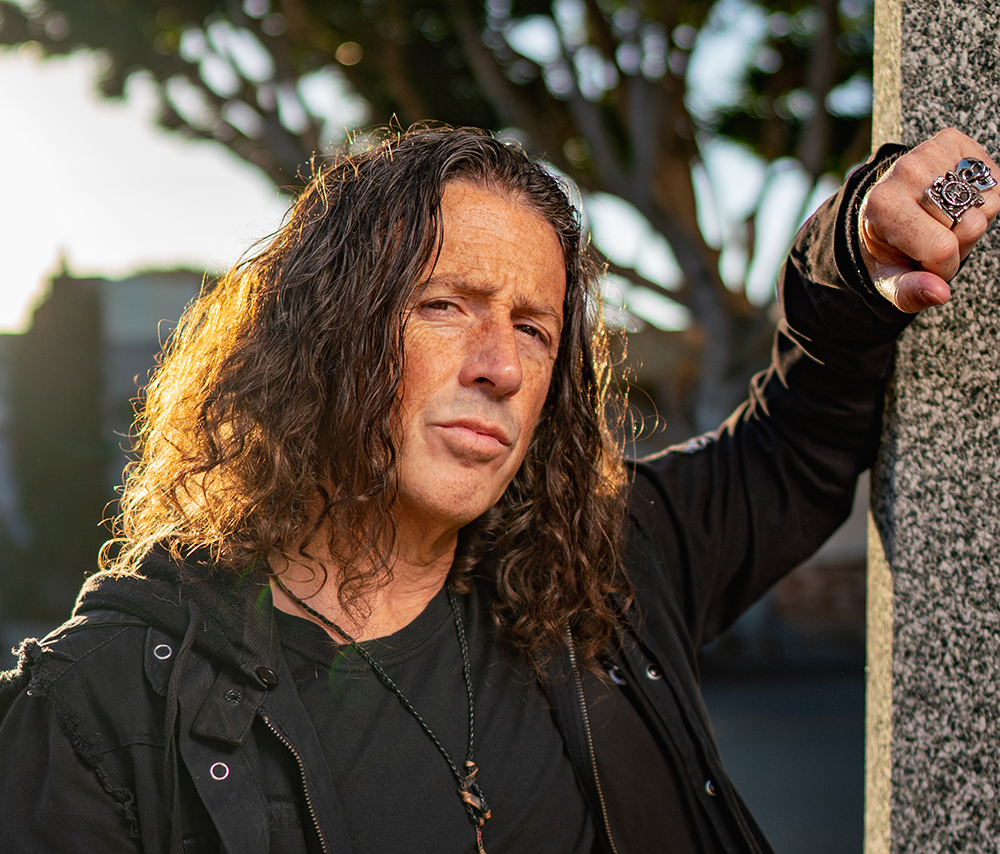You can trust Louder
Rare is the band who will experience anything remotely approaching the nerve-fraying tribulations of Lamb Of God’s ‘Thousand Day Odyssey’ – that surreal chain of events commencing in the Czech Republic in the summer of 2012 with the arrest and incarceration of frontman Randy Blythe on manslaughter charges.
Unfolding with the acute emotive heft of a classical Greek drama, Randy was eventually released, tried and acquitted – an emotionally pulverising ordeal, masterfully retold in the band’s critically hailed documentary, As The Palaces Burn. So while less than three years have elapsed between albums, VII: Sturm Und Drang feels like it’s been a long time coming. The burning question is how the band would build on 2012’s Resolution – a diverse clutch of pit-friendly beatdowns that marked a wide evolutionary step forward for the Virginia metallers. In view of all they have overcome, anything less ambitious would be a grave disappointment.
The adrenalised swarm of buzzsaw riffage, rolling toms and chugging drop-D triplets that introduce opener Still Echoes swiftly and violently dispatch such concerns, setting a feral pace that rarely relents for the next 48 minutes. But there’s far more to Sturm Und Drang than chunky riffs and slamming tempos. Structurally, the new album unveils a broadened stylistic outlook, with each track boasting multiple distinct passages connected by repeating licks and the prismatic polyrhythms of Chris Adler and John Campbell, as on the twin-fretted shellacking of Anthropoid and the Chino Moreno-assisted Embers. Elsewhere, paint-peeling belters like Erase This and Footprints see guitarists Willie Adler and Mark Morton infusing their elasticky groove metal volleying with wall-punching torrents of Bay area thrash, while Overlord, featuring Dillinger Escape Plan’s Greg Puciato, sets the high point, unfurling as a moody grunge headtrip before exploding into a dizzying blitz of pure rhythmic aggression. Torches, about the ultimate act of protest – self-immolation – closes the record with an imperious brutality that eventually burns out into a hushed, bluesy fade.
Lyrically, Sturm Und Drang explores the capacities of the human spirit under gruelling pressure – unsurprising, given Randy’s experiences in Prague’s Pankrác Prison, where, in World War II, nearly 2,000 people were beheaded not far from his cell (‘A thousand heads cut clean across their necks, right down the hall from me’). But the new album also taps into the fear, uncertainty and self-doubt that ineffably plague moments of profound stress, such as on 512, where he cries out,_ ‘I can’t recognise myself/I’ve become someone else’_. Intended as the final word on his Prague ordeal, Randy has left no emotion unexamined.
Behind the polished, muscular production of Josh Wilbur, Sturm Und Drang delivers LOG’s finest outing in a decade – a filler-free showcase of anthemic choruses, bludgeoning grooves and some of the best damned riffs the band have ever written, squarely establishing that tension is indeed essential to all great art. Or as Randy puts it, “Hard times make for good metal.”
Sign up below to get the latest from Metal Hammer, plus exclusive special offers, direct to your inbox!
Hailing from San Diego, California, Joe Daly is an award-winning music journalist with over thirty years experience. Since 2010, Joe has been a regular contributor for Metal Hammer, penning cover features, news stories, album reviews and other content. Joe also writes for Classic Rock, Bass Player, Men’s Health and Outburn magazines. He has served as Music Editor for several online outlets and he has been a contributor for SPIN, the BBC and a frequent guest on several podcasts. When he’s not serenading his neighbours with black metal, Joe enjoys playing hockey, beating on his bass and fawning over his dogs.


